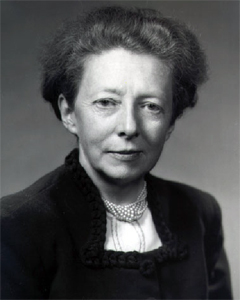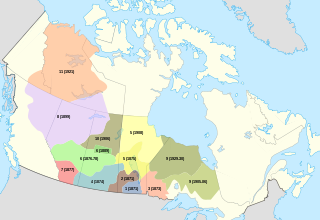Related Research Articles
The Beaver Wars, also known as the Iroquois Wars or the French and Iroquois Wars, were a series of conflicts fought intermittently during the 17th century in North America throughout the Saint Lawrence River valley in Canada and the Great Lakes region which pitted the Iroquois against the Hurons, northern Algonquians and their French allies. As a result of this conflict, the Iroquois destroyed several confederacies and tribes through warfare: the Hurons or Wendat, Erie, Neutral, Wenro, Petun, Susquehannock, Mohican and northern Algonquins whom they defeated and dispersed, some fleeing to neighbouring peoples and others assimilated, routed, or killed.

Pontiac's War was launched in 1763 by a loose confederation of Native Americans who were dissatisfied with British rule in the Great Lakes region following the French and Indian War (1754–1763). Warriors from numerous nations joined in an effort to drive British soldiers and settlers out of the region. The war is named after Odawa leader Pontiac, the most prominent of many indigenous leaders in the conflict.
The Seneca are a group of Indigenous Iroquoian-speaking people who historically lived south of Lake Ontario, one of the five Great Lakes in North America. Their nation was the farthest to the west within the Six Nations or Iroquois League (Haudenosaunee) in New York before the American Revolution. For this reason, they are called “The Keepers of the Western Door.”

Conrad Michael Richter was an American novelist whose lyrical work is concerned largely with life on the American frontier in various periods. His novel The Town (1950), the last story of his trilogy The Awakening Land about the Ohio frontier, won the 1951 Pulitzer Prize for Fiction. His novel The Waters of Kronos won the 1961 National Book Award for Fiction. Two collections of short stories were published posthumously during the 20th century, and several of his novels have been reissued during the 21st century by academic presses.
The Covenant Chain was a series of alliances and treaties developed during the seventeenth century, primarily between the Iroquois Confederacy (Haudenosaunee) and the British colonies of North America, with other Native American tribes added. First met in the New York area at a time of violence and social instability for the colonies and Native Americans, the English and Iroquois councils and subsequent treaties were based on supporting peace and stability to preserve trade. They addressed issues of colonial settlement, and tried to suppress violence between the colonists and Indian tribes, as well as among the tribes, from New England to the Colony of Virginia.

Alan Shaw Taylor is an American historian and scholar who is the Thomas Jefferson Memorial Foundation Professor of History at the University of Virginia. A specialist in the early history of the United States, Taylor has written extensively about the colonial history of the United States, the American Revolution, and the early American Republic. Taylor has received two Pulitzer Prizes and the Bancroft Prize, and was also a finalist for the National Book Award for non-fiction. In 2020 he was elected to the American Philosophical Society.

The Treaty of Fort Pitt, also known as the Treaty With the Delawares, the Delaware Treaty, or the Fourth Treaty of Pittsburgh, was signed on September 17, 1778, and was the first formal treaty between the new United States of America and any American Indians, in this case the Lenape, who were called Delaware by American settlers. Although many informal treaties were held with Native Americans during the American Revolution from 1775 to 1783, the first one that resulted in a formal document was signed at Fort Pitt, Pennsylvania, now the site of Downtown Pittsburgh. It was essentially a treaty of military alliance between the Lenape Nation and the United States.

Van Wyck Brooks was an American literary critic, biographer, and historian.
Leon Frank Litwack was an American historian whose scholarship focused on slavery, the Reconstruction Era of the United States, and its aftermath into the 20th century. He won a National Book Award, the Pulitzer Prize for History, and the Francis Parkman Prize for his 1979 book Been In the Storm So Long: The Aftermath of Slavery. He also received a Guggenheim Fellowship.
Madame Montour was an interpreter, diplomat, and local leader of Algonquin and French Canadian ancestry. Although she was well known, her contemporaries usually referred to her only as "Madame" or "Mrs." Montour. She may have been Isabelle Couc, a mixed born in 1667, or perhaps Isabelle Couc's niece, who was born around 1685 and whose given name is uncertain.
James Hart Merrell is a Lucy Maynard Salmon Professor of History Emeritus at Vassar College. Merrell is primarily a scholar of early American history, and has written extensively on Native American history during the colonial era. He is one of only five historians to be awarded the Bancroft Prize twice.

The Treaty of Fort Stanwix was a treaty finalized on October 22, 1784, between the United States and Native Americans from the six nations of the Iroquois League. It was signed at Fort Stanwix, in present-day Rome, New York, and was the first of several treaties between Native Americans and the United States after the American victory in the Revolutionary War.

The Lachine massacre, part of the Beaver Wars, occurred when 1,500 Mohawk warriors launched a surprise attack against the small settlement of Lachine, New France, at the upper end of Montreal Island, on the morning of 5 August 1689.

The Iroquois, also known as the Five Nations, and later as the Six Nations from 1722 onwards; alternatively referred to by the endonym Haudenosaunee are an Iroquoian-speaking confederacy of Native Americans and First Nations peoples in northeast North America. They were known by the French during the colonial years as the Iroquois League, and later as the Iroquois Confederacy, while the English simply called them the "Five Nations". The peoples of the Iroquois included the Mohawk, Oneida, Onondaga, Cayuga, and Seneca. After 1722, the Iroquoian-speaking Tuscarora people from the southeast were accepted into the confederacy, from which point it was known as the "Six Nations".

Constance Winsor Green, best known as Constance McLaughlin Green, was an American historian. She who won the 1963 Pulitzer Prize for History for Washington, Village and Capital, 1800–1878 (1962).
Teganissorens was an influential Onondaga chief, orator and diplomat. He played a leading role in English–French–Iroquois relations during the last quarter of the seventeenth and first quarter of the eighteenth centuries.

The Michel Band is an Indigenous nation of central Alberta, Canada, which the Government of Canada recognized as a nation and treaty partner from 1878 to 1958. The descendants of that historic band, now organized as an association called the Michel First Nation, are engaged in legal and political action to regain recognition.

Facing East from Indian Country: A Native History of Early America is a work of Native American history by historian Daniel K. Richter that investigates the settlement of North America by Europeans from the perspective of American Indians. The book was a Pulitzer Prize finalist in 2002.
Louis-Thomas Chabert de Joncaire, also known as Sononchiez by the Iroquois, was a French army officer and interpreter for New France who worked with the Iroquois tribes during the French and Indian Wars in the early 18th century. He helped negotiate the Great Peace of Montreal in 1701 and founded Fort Niagara in 1720.
The History of the Five Indian Nations is a book by the natural scientist Cadwallader Colden, who served as the governor of the Province of New York. It was first published in New York in 1727 and a second edition was published in London in 1747.
References
- ↑ "Finalist: Facing East from Indian Country: A Native History of Early America". Pulitzer Prizes. Archived from the original on 2016-10-01. Retrieved 2021-11-07.